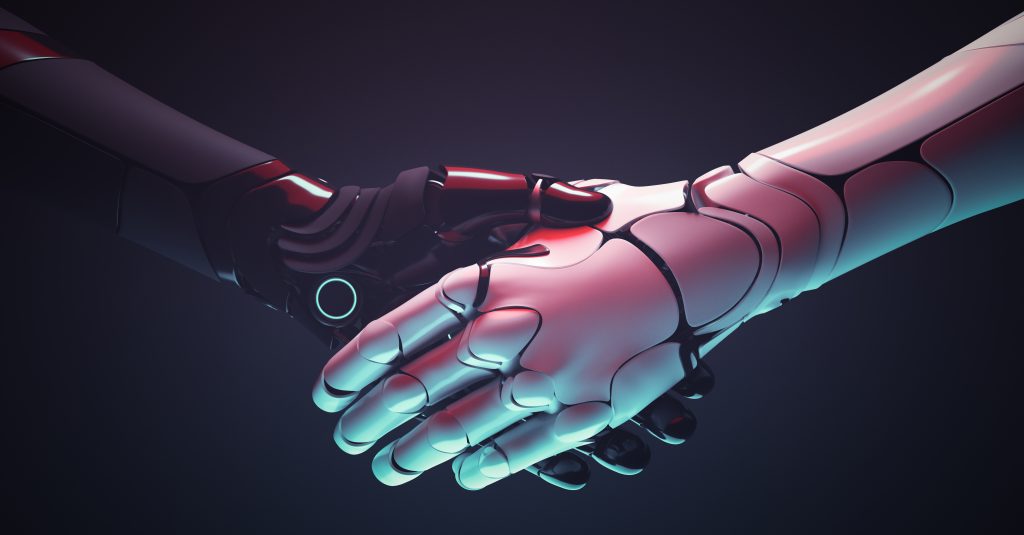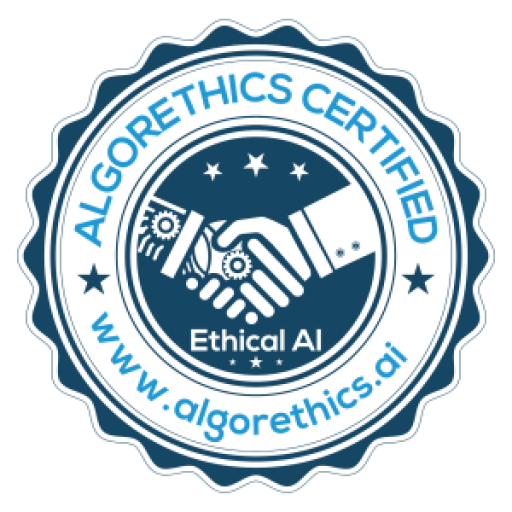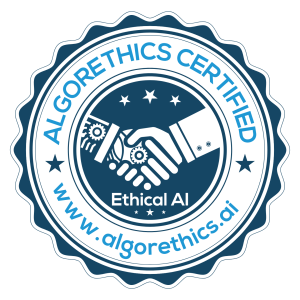From the Vatican to the World: A Moral Framework for Technology
The rise of Artificial Intelligence presents one of the greatest moral challenges of our time. As machines begin to make decisions that affect millions — from determining access to healthcare to influencing elections — humanity stands at a crossroads. Will AI serve the common good, or will it become a tool of exploitation, division, and control?
In 2020, a historic initiative emerged from an unexpected source — the Pontifical Academy for Life, an institution of the Vatican. This initiative, known as the Rome Call for AI Ethics, became a landmark document that reframes AI governance not merely as a technical issue, but as a profoundly moral one. Co-signed by leaders from Microsoft, IBM, and global academic institutions, the Rome Call represents a rare convergence of technology, faith, and ethics.
At Algorethics, we stand proudly aligned with the Rome Call. Our platforms, certification frameworks, and real-time monitoring tools are designed to operationalize the six ethical principles laid out in the Rome Call — making them actionable, measurable, and enforceable across sectors.
Origins of the Rome Call
The Rome Call was born from a series of dialogues hosted at the Vatican, bringing together religious leaders, scientists, ethicists, and corporate executives. Unlike secular frameworks, the Rome Call speaks to the spiritual and humanistic dimensions of AI — affirming that technology must never lose sight of human dignity.
The initiative gained momentum with the endorsement of Pope Francis, who emphasized that “AI must be at the service of humanity and the planet.” From this moral foundation, the Rome Call articulated six core principles — a compass for ethical innovation.
The Six Principles of The Rome Call for AI Ethics

Transparency
- At Algorethics, we embed explainability tools (e.g., LIME, SHAP) in all validator and
- At Algorethics, we embed explainability tools (e.g., LIME, SHAP) in all validator and

Inclusiveness
- AI must be inclusive, ensuring that everyone can benefit and no one is excluded, particularly the marginalized or vulnerable.
- Our certification frameworks include demographic bias checks and equity scoring, ensuring ethical compliance across gender, race, language, and disability.

Accountability
- Human beings must be responsible for AI decisions. There should be clear mechanisms for recourse, correction, and legal redress.
- Algorethics integrates audit logs, blockchain-certified decisions, and responsibility assignment into all our governance products.

Impartiality
- AI must not reflect or amplify unfair biases. It should operate fairly, impartially, and consistently.
- Our Ethical AI Validator includes bias scanning tools and fairness assurance audits to ensure algorithmic neutrality.

Reliability
- AI must be reliable, functioning with accuracy, stability, and resilience across diverse scenarios.
- Our test environments simulate ethical dilemmas, stress conditions, and edge-case scenarios to validate safe system behavior.

Security and Privacy
- Every AI system must safeguard personal data and uphold the right to privacy.
- Our Carlo PEaaS platform features end-to-end encryption, purpose limitation compliance, and data residency controls.
The Rome Call in a Global Context
Too often, ethical principles remain on paper — disconnected from implementation. At Algorethics, we bridge the gap between vision and verification by embedding the Rome Call’s values into every step of the AI lifecycle:
- Design Phase: Incorporate ethical checklists aligned to Rome Call values
- Development: Use datasets pre-screened for bias, with continuous explainability testing
- Deployment: Implement live monitoring via Carlo PEaaS for real-time ethical enforcement
- Post-Deployment: Enable continuous auditing, feedback loops, and user recourse mechanisms
Whether it’s a fintech loan model, a healthcare diagnostic tool, or a government surveillance system — Algorethics ensures the Rome Call’s ethics are enforced, not just admired.
Faith and Ethics in a Digital Age
While many AI frameworks focus on technical or legal compliance, the Rome Call uniquely integrates moral philosophy, human rights, and spiritual reflection. It calls for:
- An end to algorithmic discrimination
- Preservation of human autonomy
- Prevention of AI misuse in warfare or manipulation
- Sustainable and inclusive AI development
It complements and elevates secular frameworks like:
- EU AI Act (for risk classification and compliance)
- OECD AI Principles (for innovation and trust)
- UNESCO Ethics of AI (for global development goals)
The Rome Call strengthens these standards by reminding the world that technology is not neutral — it reflects the values we embed into it.
Faith and Ethics in a Digital Age
One of the most profound contributions of the Rome Call is the recognition that faith traditions have a vital role in shaping AI’s future. As Pope Francis stated: The ethical development of algorithms must be inspired by the values of the human person. This is not about religious control of science, but a spiritual partnership that calls for:
- Compassionate design
- Moral imagination in code
- Technological humility
- Prioritization of the common good
At Algorethics, we honor this perspective by fostering interfaith dialogues, integrating conscience review boards, and upholding human dignity in every model we validate.
Rome Call in Action — Inside Algorethics Platforms
- Provides open-source templates and model cards aligned with Rome Call values
- Pre-integrated fairness filters and privacy-first architectures
dilemma cases.
- Offers real-time enforcement of Rome Call principles in live AI systems
- Detects ethical violations and generates actionable feedback
- Assesses AI projects against Rome Call benchmarks
- Issues blockchain-based ethical certificates for transparency
- Offers Rome Call ethics courses, case studies, and certifications
- Empowers developers and policy leaders with spiritual-ethical training
Read and Share the Rome Call
To promote global awareness and application of this ethical milestone, we encourage all developers, governments, educators, and citizens to read and share the Rome Call.
Global Endorsements and Impact
Since its launch, the Rome Call has been endorsed by:
- Microsoft, IBM, Cisco, Salesforce
- University of Notre Dame, Sapienza University of Rome
- Muslim World League, Jewish World Congress
- UN agencies and EU digital ministries
It has inspired:
AI governance policies in Italy, Brazil, and India
Vatican-hosted summits on AI and ethics
Collaborative programs between tech giants and the Church
It’s not just a call — it’s a movement.
Join the Movement
At Algorethics, we invite you to:
Enroll in our Rome Call Ethics Courses
Submit your project for Ethical AI Certification
Partner with us for interfaith AI dialogue
Advocate for the Rome Call in public policy
Together, we can:
Turn principles into platform rules
Build AI that reflects conscience, not just code
Restore trust in technology
Rome Call at the Heart of Algorethics
The Rome Call is not just a reference document for us — it is the soul of our work.
Every tool, validator, policy engine, and certificate we design is infused with its six values. We don’t just say “Ethical AI” — we enforce it, guided by a moral compass that points to human dignity, accountability, and love.
Let’s not wait for ethical disasters to act. Let’s start now.
Read the Rome Call | 🔍 Explore Ethical Alignment
Algorethics — Upholding the Rome Call in Every Algorithm.

